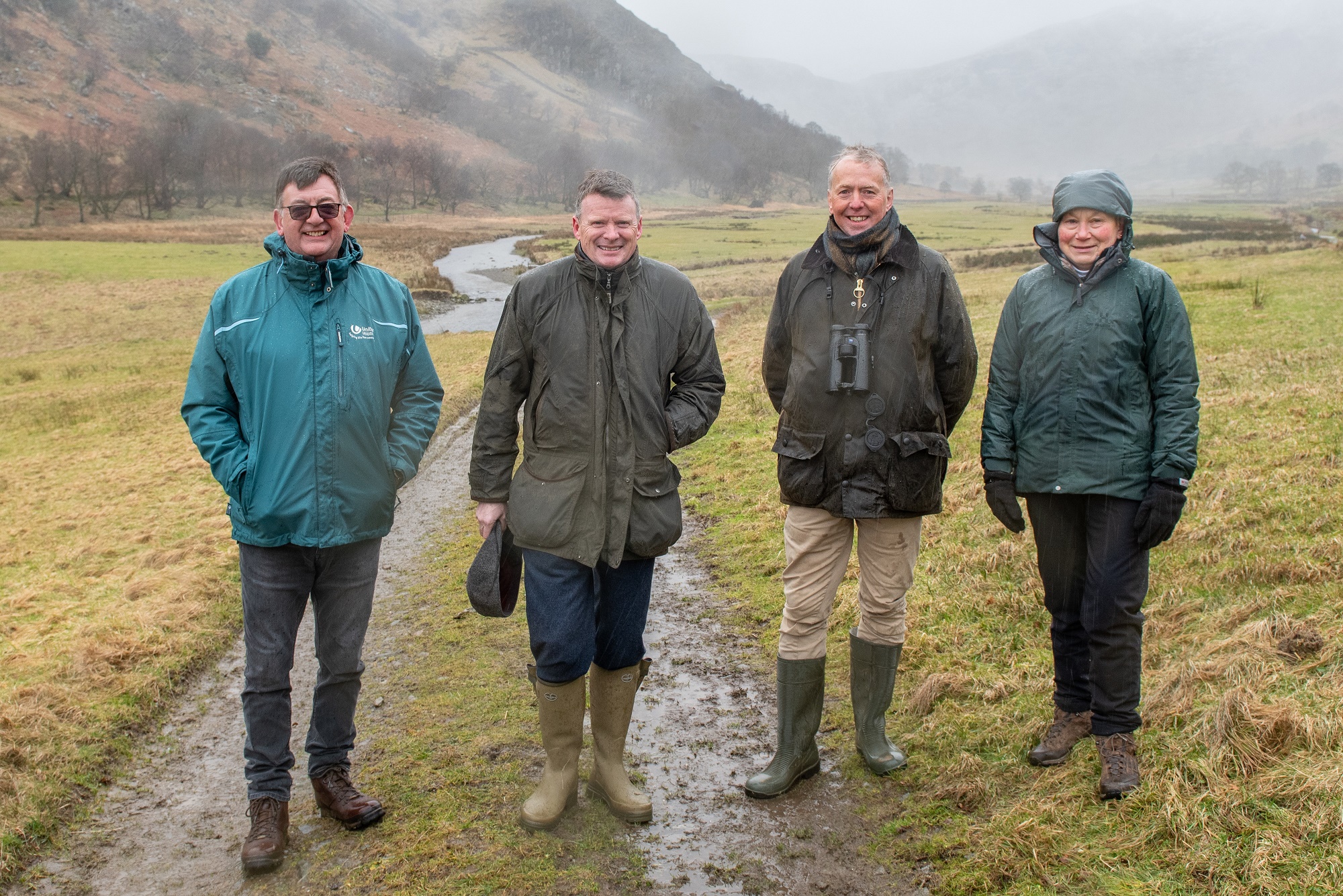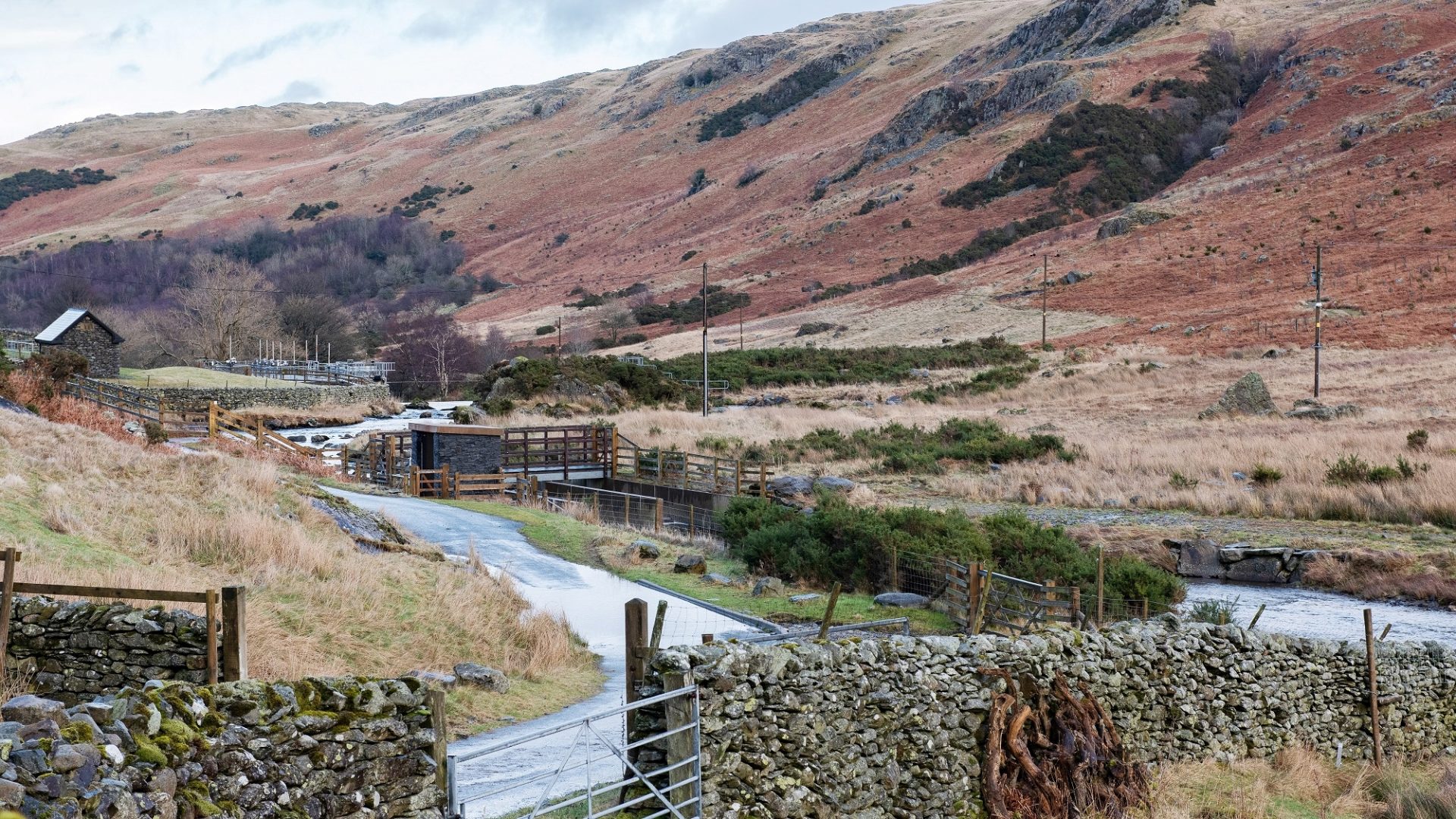United Utilities and the Royal Society for the Protection of Birds (RSPB) have been working together at Haweswater Reservoir over the last ten years to return the land to a more natural state. The project provides a template for how land can be better managed in England’s National Parks, delivering on the Government’s new vision for these landscapes to be rich in nature and driving nature’s recovery. This comes at a crucial time, in the middle of the Government’s consultation on the future of England’s National Parks. It also demonstrates practical steps to achieving the changes required by the new Environment Act; improving air and water quality, halting the decline of species and improving the natural environment.

Lord Benyon, Minister for Rural Affairs, Access to Nature and Biosecurity, visited Haweswater to learn more about the scheme.
The quality of the raw water in the reservoir, which serves a quarter of the North West region, is directly affected by the condition of the surrounding catchment land which drains into it.
With improving raw water quality as the starting point for habitat restoration, the partnership has gradually introduced a range of measures drawing on funding from different sources. These have resulted in many benefits including landscape and nature restoration, carbon capture, contributing to reducing downstream flood risk, sustainable livestock production and access improvements.
This includes award-winning schemes such as the re-meandering of Swindale Beck. The river, which had been artificially straightened some 200 years ago to increase grazing land, was put back to a more natural, meandering course, restoring important habitat for salmon, birds and insects, while reducing levels of silt being carried into the reservoir.
Tens of thousands of trees have been planted and 29 miles of moorland drainage ditches have been blocked up to restore peat bogs, reduce soil erosion and lock up carbon. As part of a farming diversification trial into low impact eco-tourism, wildlife photography hides have been created to offer opportunities for visitors to encounter iconic species such as the red squirrel, badger and pied flycatcher.
The work at Haweswater also demonstrates how new funding mechanisms can support the rural economy instead of traditional agricultural subsidies. A new native tree and wildflower nursery has been established at Haweswater, with £250,000 of funding from Defra’s Green Recovery Challenge Fund in addition to £150,000 from United Utilities. This is increasing employment and supplying specialist upland trees, shrubs and arctic alpine plants to help the landscape restoration work continue.
Steve Mogford, CEO of United Utilities, said: “Landscape scale restoration projects take long-term vision and a collaborative approach. We’re already seeing the benefits of our joint vision with the RSPB at Haweswater and this is a perfect example of what the Environment Act is trying to achieve. United Utilities has been at the forefront of catchment management for years, but what we have learned is that water companies cannot bring about these changes alone. We hope the Haweswater scheme demonstrates that wider adoption of some of these practices could help bring about the nature recovery that we all want to see.”
Kevin Cox, Chair of the RSPB Council, said: “Our work at Haweswater shows the true power of partnerships. By working together with United Utilities and host of other partners, nature is benefitting from our collective efforts. Restoring land in the uplands is slow, hard work, but with the Nature and Climate Emergency becoming ever more pressing, it’s vital that we act urgently. I hope that our work will inspire others to take similar approaches that benefit water, wildlife and people.”
Lake District National Park Authority’s director of sustainable development, Steve Ratcliffe, added: “The scale of nature recovery at Haweswater is impressive and clearly demonstrates what can be achieved when we commit to working in partnership. Nature recovery through farming is a priority outcome of our Partnership Plan and it was a real pleasure to show the Minister a number of examples of where communities are working together to reverse biodiversity loss and tackle climate change within our cultural landscape. We all need to commit to ensuring this is a success and done urgently.”



